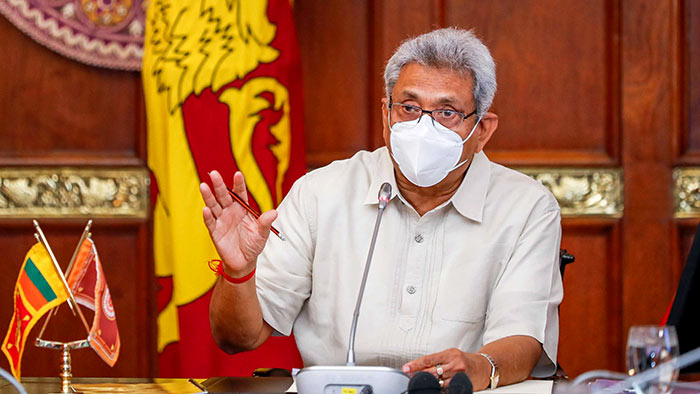Sri Lanka president says no more power cuts after March 05

Sri Lanka will suffer no more power cuts after March 05, the president’s office said in a statement on Wednesday, following days of outages caused by a lack of funds to buy enough fuel to fire power plants.
The statement did not spell out how the South Asian country would secure fuel supplies to keep the power on from Saturday. Shortages have also led to long lines at petrol stations over the past month.
“There will be no power cuts from March 05. The distribution of fuel to all fuel stations across the country will be normalised from tomorrow,” the statement by President Gotabaya Rajapaksa’s office said.
Sri Lanka currently needs about $500 million a month to source diesel and gasoline, but resorted to power cuts last week as it scrambled to secure $31 million for a 3,700-million-tonne fuel shipment.
A spokesperson for the federal power ministry did not immediately respond to emails and calls on how the government planned to ensure supplies to fuel power plants.
Sri Lanka’s central bank has stopped releasing funds to pay for fuel shipments, two senior energy ministry sources said.
Nearly a third of Sri Lanka’s electricity is generated by oil-fired power plants and a similar amount comes from coal and hydro power, according to the state-run Ceylon Electricity Board (CEB).
Namal Hewage, general manager of state-run Lanka Coal Co Pvt Ltd, said the country had sufficient coal to ensure a continuous supply of electricity from the Ceylon Electricity Board-run coal-fired power plant.
Lanka Coal had issued a spot tender for 1.8 million tonnes in September, after which it received 30 shipments from South Africa and eight shipments from Russia, Hewage said.
The country has procured another 480,000 tonnes of South African-origin coal that are expected to arrive at the country’s ports over the coming days.
“This could be sufficient to last until September. The central bank has helped us with the letter of credit to pay for the coal supplies,” Hewage said.
(Reuters)
Latest Headlines in Sri Lanka
- Sri Lanka raises daily wage of plantation workers to Rs. 1,750 January 30, 2026
- Sri Lanka expands Internal Affairs Units to 250 more state institutions January 30, 2026
- Three arrested over Rs. 17 Million Lanka Sathosa garlic scam January 30, 2026
- Businessman arrested over Rs. 30 Million money laundering case linked to former minister January 30, 2026
- Six police officers arrested over alleged priest assault granted bail January 29, 2026


